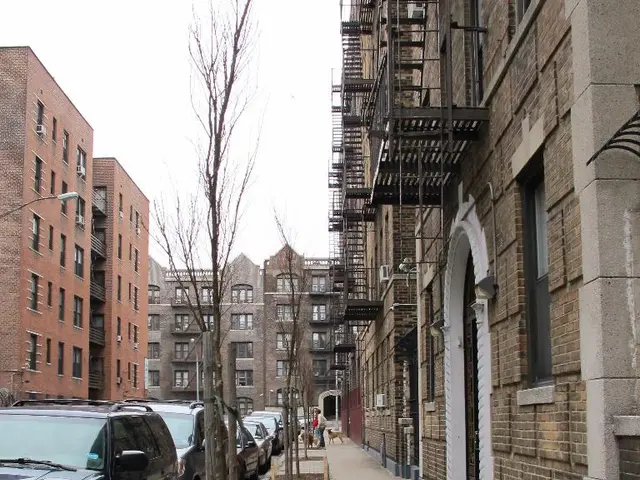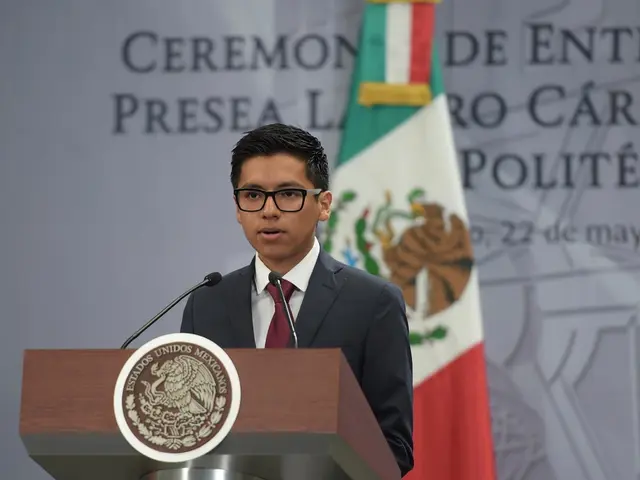Academics and staff at Columbia University call for university's resistance against federal authorities' actions
Revamped Rant:
Columbia University's campus erupted in protest yesterday, as students, faculty, staff, and alums gathered for a 25-hour "speak out" to slam school leaders grappling with the Trump administration's funding axe. Over 400 million bucks in federal dollars was slashed, sparking a heated debate over academic freedom and student rights.
The demonstrators decried what they considered a Columbia administration's surrender to Washington, with schools' academic freedom under the gun. Protesters argued that the university's academic stance and free speech were being undermined due to federal pressure.
The administration has targeted higher education institutions across the nation, halting billions in federal grants and research funding in a bid to tackle supposed failures in dealing with antisemitism and protests against Israel's military actions in Gaza.
One of the protest's organizers, Brooke West, a professor of social work, pointed out the paradox of teaching and learning in an environment under attack. "How can we continue to educate and foster knowledge when the students, institutions, academic freedom, and free speech are under siege?" she asked.
David Guirgis, an upcoming graduate with a master's in social work, voiced his disappointment over Columbia's perceived lack of resolve in standing up to the administration. "We are leaders in biomedical research, legal, and environmental science research. Cutting all that simply because of a vendetta against universities is disgraceful," he shed light.
Columbia became the first university to feel the brunt of the administration's wrath, eventually bowing to demands like altering its admissions process, implementing greater institutional neutrality, and imposing restrictions on protests.
The White House officials defended the actions, claiming universities' alleged mishandling of student protection against antisemitism, civil rights violations, and skirted federal laws.
The administration had laid out a roadmap for Columbia to restore its federal funding, comprising demands like banning campus masks and holding disciplinary hearings for student protesters.
The federal impasse has had a profound impact, tweaking demands on the university, with students and faculty calling for their school to retaliate against these attacks, defend and protect students and international scholars, re-establish diversity policies, and safeguard researchers.
Some grave incidents have put the spotlight on Columbia's situation, including the arrest of grad student Mahmoud Khalil and the filing of a federal lawsuit by human rights organization, the Brandeis Center, on behalf of two janitors allegedly assaulted during a campus protest.
- The heated debate over the slashed funds for education at Columbia University extends beyond the campus, reaching general news, politics, and education-and-self-development discussions.
- The protests at Columbia University emphasized the importance of funding in educating future leaders in various fields such as biomedical research, legal, and environmental science.
- The administration's strategy of cutting funds to address antisemitism and protests against Israel's military actions in Gaza has been criticized by some as a form of political pressure on academic institutions.
- In the midst of the funding crisis, Columbia University has been urged to strengthen its commitment to fostering an environment free from discrimination and civil rights violations.
- The Columbia University administration is currently grappling with the dilemma of maintaining its funding while upholding the rights of students, faculty, and the principles of academic freedom and free speech.








